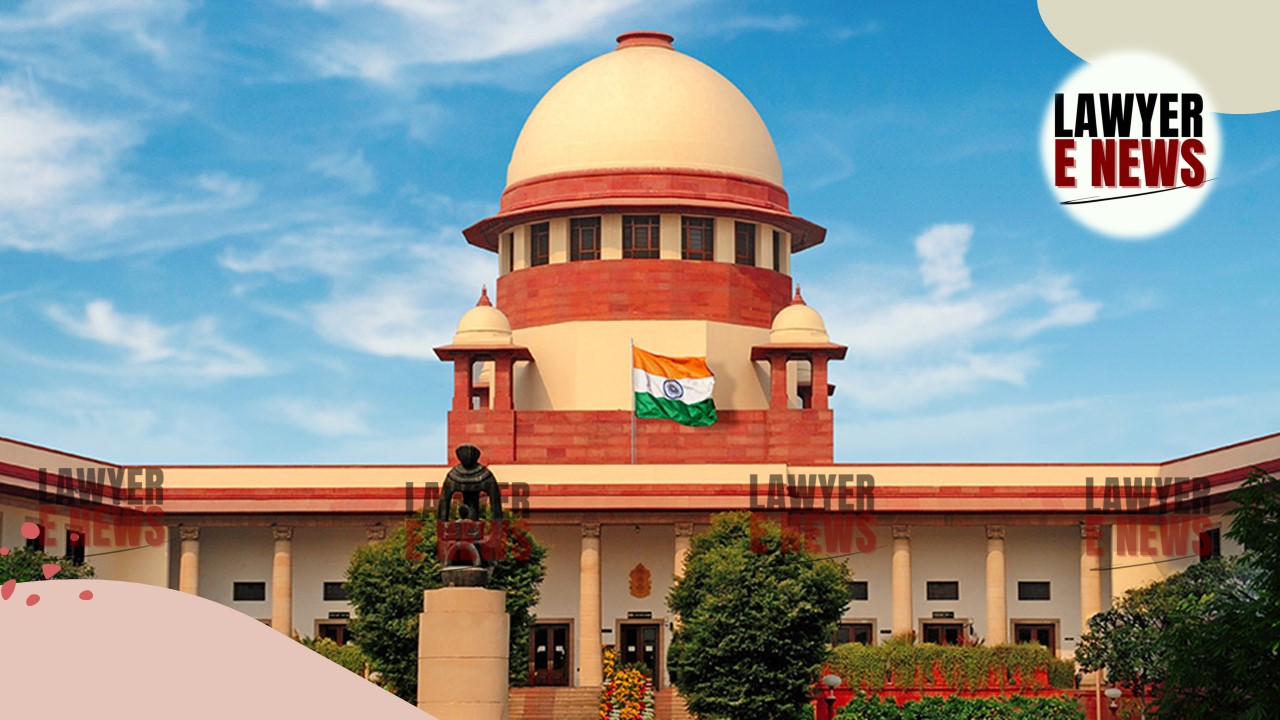-
by Admin
15 February 2026 5:35 AM



Supreme Court of India delivered a key ruling in Baljinder Singh @ Ladoo and Others v. State of Punjab, addressing the conviction of four appellants for murder and attempted murder under Sections 148, 302, and 307 of the Indian Penal Code (IPC), and Section 27 of the Arms Act. The Court dismissed the appeal and upheld the life sentences imposed by the lower courts, emphasizing that common intention to commit a crime can form even moments before the act, based on the conduct of the accused.
The case stemmed from a violent altercation on December 12, 1997, in Taran Tarn, Punjab. The incident began when one of the appellants, A-1, collided his scooter into the victim P.W.3, leading to a verbal and physical confrontation. Fifteen minutes after the altercation, A-1 returned with his co-accused, A-2, A-3, and A-4, armed with weapons. The group launched a coordinated attack, resulting in two fatalities and severe injuries to multiple victims. The trial court convicted the appellants under Sections 148, 302, and 307 IPC, and sentenced them to life imprisonment. The High Court upheld these convictions, leading to the present appeal in the Supreme Court.
The primary legal question in the appeal was whether the appellants shared a common intention to commit murder, which could warrant their conviction under Section 34 IPC. The appellants argued that no prior meeting of minds or common intention was proven, challenging the substitution of Section 149 IPC (common object) with Section 34 IPC (common intention). They also questioned the lack of injuries from brick-batting and claimed self-defense for A-4, who fired the fatal shots.
The Court reiterated that common intention under Section 34 IPC does not require a pre-arranged plan, and it can be formed moments before the crime, as long as the conduct of the accused indicates a shared purpose. The Court observed:
"Common intention can be inferred from the conduct of the co-perpetrators immediately before, during, and after the commission of the act."
The Court relied on testimonies from injured witnesses (P.W. 3, P.W. 4, P.W. 5) and corroborative medico-legal evidence, which established that the appellants acted in concert during the attack. The Court also dismissed the argument that A-4 acted in self-defense, noting that the evidence showed a retaliatory attack rather than a defensive act.
The Supreme Court carefully reviewed the evidence and the legal arguments raised by both sides. The appellants contended that the absence of independent witnesses, discrepancies in testimonies regarding brick-batting, and the lack of a prior plan indicated a failure of justice. However, the Court held that the testimonies of injured witnesses, corroborated by medical evidence, were sufficient to establish the guilt of the accused beyond reasonable doubt. The Court stated:
"The evidence of injured witnesses has greater evidentiary value and unless compelling reasons exist, their statements are not to be discarded lightly."
Additionally, the Court emphasized that the failure to produce independent witnesses did not undermine the prosecution's case, as the eye-witness accounts were found to be credible.
On the issue of common intention, the Court cited its previous rulings, including Krishnamurthy alias Gunodu v. State of Karnataka, which clarified that common intention can arise just before the criminal act:
"Common intention can be formed just a minute before the actual act happens... It can be inferred from the manner in which the accused arrived, mounted the attack, and fled the scene."
Thus, the Court concluded that the appellants had the common intention to kill, as evidenced by their collective and coordinated actions during the attack.
The Supreme Court dismissed the appeal, affirming the convictions and sentences of the appellants. It ruled that there was no failure of justice or misapplication of law, and the prosecution had successfully proven the appellants' guilt beyond a reasonable doubt. The Court reiterated that common intention can be inferred from the conduct of the accused immediately before the act, setting a significant precedent for interpreting Section 34 IPC.
Date of Decision: September 25, 2024
Baljinder Singh @ Ladoo and Others v. State of Punjab
